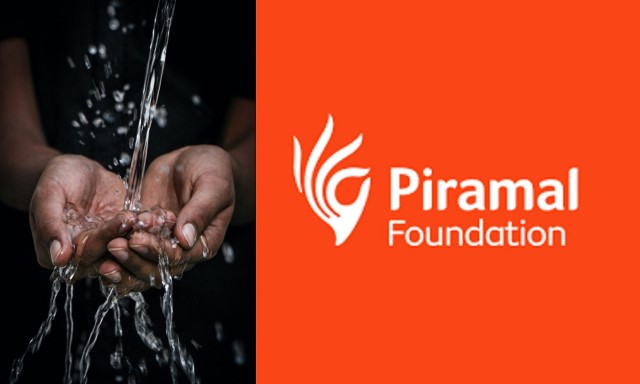MUMBAI: Piramal Foundation and Standard Chartered Bank have collaborated to provide safe drinking water to 5 lakh beneficiaries in rural communities across seven states in India. The initiative, led by Piramal Sarvajal and Enable Health Society, has undertaken safe drinking water projects to work towards water security and source sustainability in 123 villages and 25 schools.
The program has catalyzed community ownership by creating village-level institutions to plan and oversee water conservation efforts along with decentralized drinking water units, promoting collective action toward water security in Maharashtra, Uttar Pradesh, Madhya Pradesh, and Rajasthan. Currently, there are 417 women VWC members leading the grassroots governance and are part of managing the solution in their villages committing towards water conservation, agri efficiency, and greywater management.
The program has appointed and trained 34 female operators who now serve as local change-makers, taking responsibility for promoting water-efficient practices in villages. Notably, 49% of these villages are situated in aspirational districts with low Human Development Index (HDI). This program also focuses on building community ownership around water resources and has appointed and empowered VWCs in these regions.
The partnership has also benefited farmers through training sessions on agri-efficiency, empowering them with efficient farming techniques, and gaining access to government schemes for agriculture-related initiatives to a tune of Rs 1.9 crore.
Karuna Bhatia, Head of Sustainability at Standard Chartered Bank, India, said, “It is heartening to see that the Bank’s flagship CSR program, WASHE (Water Sanitation Hygiene Education), in partnership with Enable Health Society and Piramal Foundation’s water initiative, is working towards creating water-secure rural communities by going beyond just providing safe drinking water.“
Sangeeta Mamgain, Lead Climate and Sustainability program at Piramal Foundation said, “We are humbled to see the ownership of the community in adopting decentralized safe drinking water solutions and behavior changes for enabling water security. We are grateful for the transformative impact our partnership with Standard Chartered Bank and Enable Health Society has achieved for half a million beneficiaries across seven states.“
Piramal Sarvajal has been at the forefront of using technology to enhance reliability and accountability in its decentralized programs. Monitoring 751 water solutions through IoT, they measure the conservation and replenishment of 2.79 crore liters of water, ensuring efficient management of storage and borewell recharge structures.
The impact study conducted by Enable Health Society reveals a 76% reduction in waterborne illness for users consuming safe water. Furthermore, the data demonstrates over 61% lower medical expenses for Sarvajal users compared to non-users during the eighteen-month period, highlighting the tangible health benefits of having access to safe drinking water.
Piramal Foundation is the philanthropic arm of Piramal Group, committed to improving the lives of marginalized communities by leveraging the power of youth and strengthening Government systems. With operations supported by 5000+ employees and spread across 27 States and 2 Union Territories, over the last 16 years, it has touched the lives of more than 11.3 crore Indians.
Piramal Sarvajal, seeded by the Piramal Foundation in 2008, is a mission-driven social enterprise that designs and deploys innovative solutions for creating affordable access to safe drinking water in underserved areas. Sarvajal is at the forefront of developing technologies and business practices in the safe drinking water sector. Currently, reaching out to approximately 7,65,000+ beneficiaries daily, through 1965+ touch-points across 20 states in India.
Enable Health Society, a Non-Profit Organization, aims to improve the health and well-being of individuals and communities with an emphasis on disease prevention, care, and management. EHS seeks to improve the health and well-being of people by building the capacity of communities, promoting healthy practices, upholding gender equity, supporting locally adaptable technology, advocating for sound practices and policies, and inspiring people to assert their rights to better, healthier lives.
Photo by mrjn Photography on Unsplash


